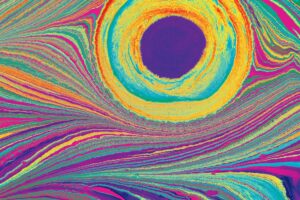Natural substances with hallucinogenic properties, known as psychedelics, have been used by human cultures for thousands of years. Nowadays, scientific communities around the world are taking a renewed interest in these substances, particularly their possible roles in the treatment of mental disorders. This exploration has led to the rise of a new approach known as psychedelic-assisted therapy.
Psychedelic-assisted therapy is a form of treatment that involves the use of hallucinogenic substances alongside traditional psychological counseling. It is being tested as an innovative approach to depression treatment, anxiety management, PTSD, addiction recovery, and other forms of mental illness.
The substances used in this therapy include psilocybin (found in magic mushrooms), MDMA (commonly known as ecstasy), and LSD. The aim is to facilitate a deep, introspective, and transformative experience that can help patients to understand and address their mental health issues. Recent research has suggested that these substances might indeed have significant therapeutic benefits.
For many years, the mainstream medical community has tended to view psychedelics with suspicion. However, society’s perception of these substances is starting to shift. As medical professionals and researchers continue to learn more about the psychological and physiological effects of psychedelics, there has been increased focus on their potential benefits.
This trend is evident in the rise of microdosing, a practice where individuals consume very small amounts of a psychedelic substance. Advocates of microdosing claim it can enhance mood, creativity, and productivity while also relieving symptoms of conditions like anxiety and depression.
Even more striking has been the finding that psychedelics may promote neuroplasticity, the brain’s ability to form and reorganize synaptic connections. Studies have suggested that psychedelics might stimulate the growth of new brain cells, paving the way for potentially transformative effects on mental health.
However, like any other form of treatment, psychedelic-assisted therapy is not without its challenges and controversies. Proper dosage and a controlled setting are crucial to preventing harmful side effects and ensuring a beneficial and therapeutic experience.
Moreover, like all treatments for mental health, psychedelic therapy requires careful integration into the patient’s lifestyle. This means not only introducing the treatment in a controlled and safe manner but also supporting the patient in processing and applying their experiences.
The question of legality also presents significant challenges. Many psychedelics remain strictly controlled substances in many jurisdictions, limiting access for medical researchers and therapists. But as scientific research continues, some jurisdictions have begun to relax their regulations for the sake of mental health research and therapy.
Despite these challenges, the potential of psychedelics in mental health treatment is beginning to gain recognition. Just recently, the FDA designated psilocybin therapy as a “breakthrough therapy” for the treatment of depression. This designation is only awarded to treatments that are likely to offer superior benefits over existing options, indicating the growing optimism about the role of psychedelics in mental health treatment.
In conclusion, the use of psychedelics in mental health treatment remains a largely unexplored frontier, but the initial findings are promising. Psychedelic-assisted therapy could revolutionize how we approach mental health. As our understanding of these substances develops, hopefully, regulatory barriers will lift to allow further exploration into these potential therapeutic wonders.
As a society, we must embrace a new perspective on psychedelics, shifting from stigmatization to recognition of their potential therapeutic value. Nevertheless, while exploring their possible benefits, we must also ensure safe, controlled, and integrated approaches to their use in treating mental health issues.







